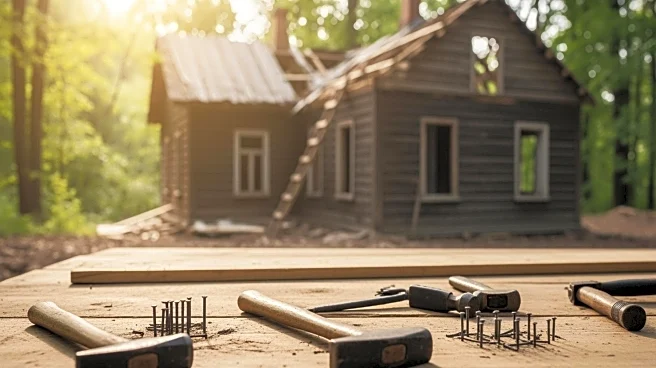What's Happening?
The historic Crippen house, once the residence of Peter Crippen, is undergoing careful deconstruction to be preserved as part of a museum. Peter Crippen was a pioneering figure in Huntington, recognized
as one of the first African American homeowners in the area and the founder of his own church. His home has served as a significant landmark for the Black community over generations. The museum aims to honor and continue the legacy of Crippen's contributions to the community, ensuring that his impact remains influential for future generations.
Why It's Important?
The preservation of the Crippen house as a museum is significant for cultural and historical reasons. It represents an effort to maintain the legacy of African American history and contributions in Huntington, providing educational opportunities and fostering community pride. This initiative highlights the importance of recognizing and preserving minority histories that have shaped local communities. The museum will serve as a resource for learning about the struggles and achievements of African Americans in the area, potentially influencing public policy and community engagement in historical preservation efforts.
What's Next?
The next steps involve the completion of the deconstruction process and the establishment of the museum. Community leaders and historians may collaborate to curate exhibits that accurately reflect the history and contributions of Peter Crippen and the broader African American community in Huntington. There may be opportunities for public involvement in the museum's development, including fundraising efforts and educational programs. The museum's opening will likely attract visitors interested in local history and cultural heritage, fostering a deeper understanding of the area's diverse past.
Beyond the Headlines
The preservation of the Crippen house underscores broader themes of historical recognition and the importance of safeguarding cultural landmarks. It raises questions about how communities choose to honor their past and the role of museums in educating the public about diverse histories. This initiative may inspire similar projects in other regions, encouraging a nationwide movement towards preserving minority heritage sites. It also highlights the ethical considerations in historical preservation, ensuring that the narratives of marginalized groups are accurately represented and celebrated.









